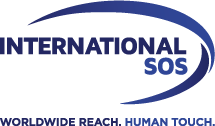Travelling with Children on Private Flights
Recent statistics indicate many children are flying on private flights, with 15-25% of flights from large charter companies having children on board. Pre-travel advice is not always available for children like it is for adults. Parents and clinicians should work together to ensure that child & infant travellers are as safe and as comfortable as possible.

Deborah Richeal, NRP, MedAire Instructor, MedAire, advises, “Adults travelling with children should consider taking a first aid and CPR course before travelling. This can be crewmembers, other guests, as well as the parents. Medical training and CPR for children are a part of MedAire's Management of In-Flight Illness and Injury training. Parents can assess all anticipated travel-related activities with a call to MedAire's Global Response Centre and their physician. Also, it’s advisible that there is a Paediatric Medical Kit onboard, which contains the most common medications in lower dosage sublingual or liquid form for children.”
According to MedAire’s MedLink Emergency Response Centre - which handles 300 in-flight calls a day from aircraft across the world - two out of every ten calls involves a child under the age of twelve. The most common emergencies: fever, febrile seizures (seizures caused by the fever rising too high in very young children), vomiting, symptoms due to an allergic reaction & medical events related to a pre-existing condition. Other commonly reported health problems among child travellers are diarrhoea, dermatologic conditions (animal and arthropod bites), sunburn, fever reported from malaria and respiratory disorders.
Travelling with infants can be a challenge in many ways. Their immune systems are still developing, and air travel can increase the risk of catching an infectious disease. Changes in schedules, activities and environment can also be stressful for children and infants suppressing their immune system, making them more susceptible to illness. Consult your physician for children and infants with chronic illnesses regarding timing and itinerary are recommended.
CALL A GROUND-BASED MEDICAL PROVIDER
- Contact an assistance provider, such as MedAire’s Global Response Centre, to help prepare for your trip with advice for travelling with your child and information about the conditions at your destination.
- Hospital recommendations with paediatric specialities or capabilities. Can medical services be utilised or will an evacuation be needed?
- Vaccinations needed for the destination, if the child visits friends/relatives in a developing country, the child is at increased risk for exposure to malaria, intestinal parasites, and TB (tuberculosis).
- Recommendation for necessary legal documentation (custody papers, birth certificates, passports, etc.)
- Check to see if the aircraft includes a Paediatric Medical Kit which contains the most common medications in lower dosage sublingual or liquid form for children to take.
TO REDUCE THE RISKS
- A pre-travel visit to the doctor is recommended to ensure that the child’s routine vaccinations are up to date. If the child has a pre-existing medical condition obtaining a clinician’s approval to travel with specific instructions would be appropriate.
- Frequently wash your hands and avoid contact with unwell travellers, if possible.
- Cabin pressure changes can cause temporary changes in the middle ear pressure which can cause ear pain. Offer the infant a pacifier, bottle or breastfeed during takeoff and descent to help equalise the pressure in your baby’s ears.
- Teaching your child Valsalva Maneuver (pinching the nose and blowing), yawning, swallowing or chewing can help relieve inner ear pressure in older children.
- Consider using noise-cancelling headphones, small earplugs or cotton balls to reduce the noise level thus reducing fatigue so your infant can nap.
- Use FAA recommended child seats during flight as turbulence may place your infant at risk for injury if only sitting on a parent’s lap.
- Although it is tempting to give your child or infant over-the-counter medication pre-flight to assist with sleeping this is not recommended as medication can also potentially have the opposite effect.
When in doubt, consult with your child’s clinician and call your assistance provider to see if your child is fit to fly.
Notes to Editors
About MedAire
MedAire, an International SOS company, has been a partner to the aviation industry since 1985. MedAire provides fully integrated travel health and security solutions to over 150 of the world’s leading airlines and more than 4,000 private aircraft including 75% of fortune 100 companies. Integrated solutions include real-time advice and assistance, training, equipment, and professional services for crew and passengers both in and beyond the cabin. MedAire’s MedLink and Global Response Centre, handle thousands of calls a year to help crew and passengers manage medical and travel safety events in the air and on the ground with 24/7 access to emergency care doctors, nurses and aviation security specialists.
For more information visit www.medaire.com
Follow at www.linkedin.com/company/medaire


